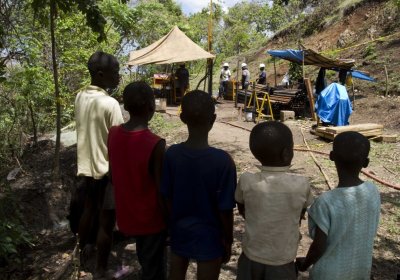The United States is searching for a formula to justify its fourth major military intervention into Haiti in a century, reports Kim Ives.
Kim Ives
Kim Ives looks at events in the days leading up to Jovenel Moise's assassination in Haiti.
A form of “people’s war” is emerging in Haiti, according to Kim Ives, where people are sick and tired of poverty and being used by elites.
Haitian president Jovenel Moïse is clinging to power, after a February 7 constitutional deadline that stipulated he must step down. Kim Ives explains the background to Haiti’s latest political crisis.
Haiti’s capital, Port-au-Prince looks post-apocalyptic, reflecting the fierce class war which has raged here since last year, if not since 1986, writes Kim Ives.
Thousands took to the streets in towns and cities around Haiti on June 9 to demand President Jovenel Moïse’s resignation and the prosecution of those responsible for looting about US$2 billion from the government’s Petrocaribe Fund, writes Haiti Liberté's Kim Ives.
Embattled President Jovenel Moïse used United States' help in a poorly executed, but serious, effort to consolidate power writes Matthew Cole (The Intercept) and Kim Ives (Haiti Liberte).
Chaos reigned in Haiti for a seventh straight day on February 13, as people continue to rise up against President Jovenel Moïse over his corruption, arrogance, false promises and straight-faced lies. But the crisis will not be solved by Moïse’s departure, which appears imminent, writes Kim Ives.
Haiti exploded in early July in a nationwide uprising whose Kreyòl watchwords are nou bouke — we are fed up, writes Kim Ives.
- Page 1
- Next page











